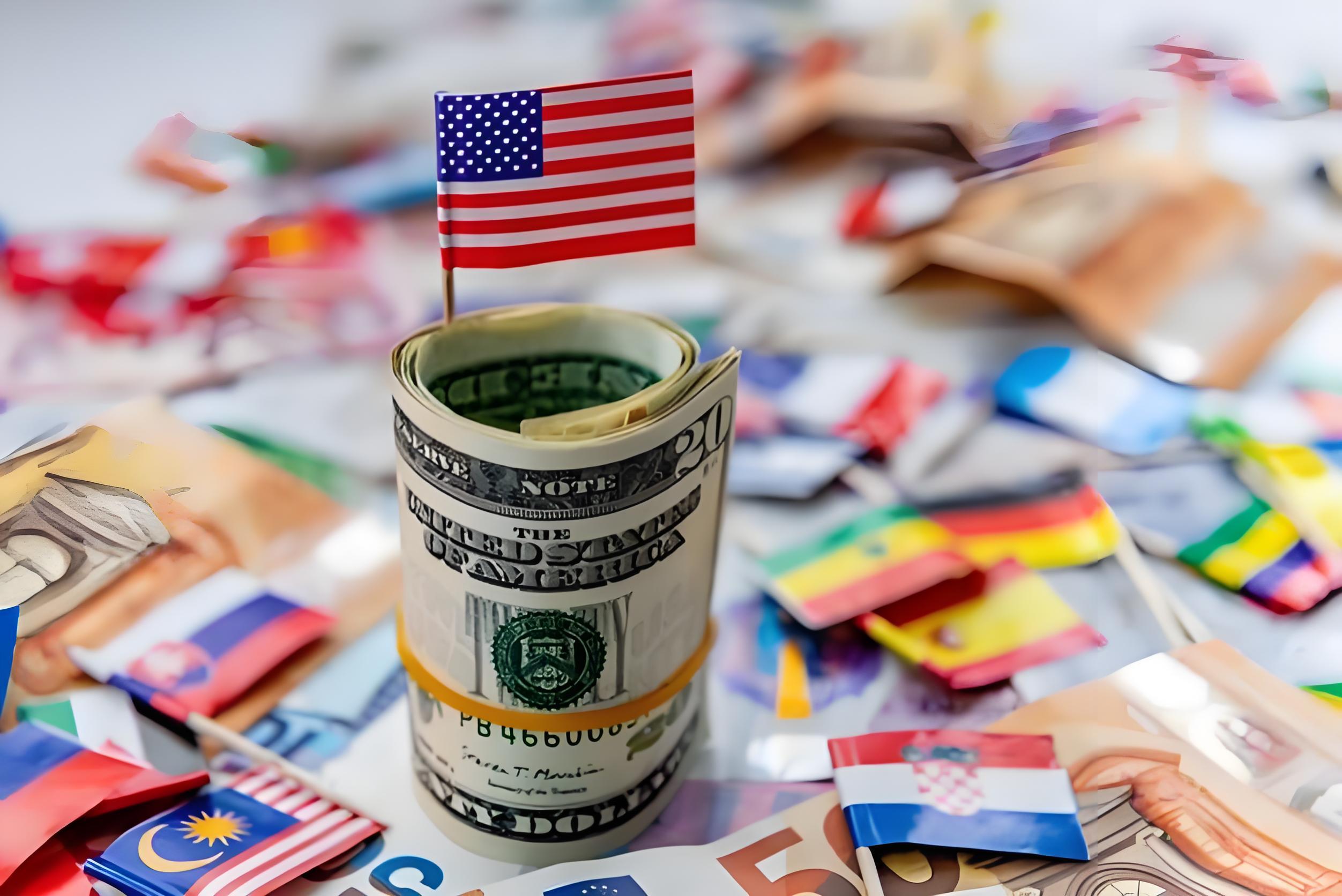
In 2025, the U.S. economy is like a huge ship sailing on the rough sea, facing many complex and tough challenges, and its growth prospects have attracted worldwide attention. Affected by factors such as the uncertainty of trade policies, market fluctuations, and rising consumer prices, many economic experts and institutions predict that the U.S. economy is expected to fall into recession this year, with the annual economic growth forecast being only 0.5%. However, there are different views that the "Big and Beautiful" Tax and Spending Act will help stabilize the U.S. economy in the short term, and may increase the average annual real GDP growth rate by 0.2 percentage points from 2025 to 2027.
Data released by the U.S. Department of Commerce shows that the real GDP of the United States fell by 0.3% month-on-month in the first quarter of 2025, which is the first quarterly negative growth in three years. This data is like a wake-up call, sounding the alarm for the current situation of weak economic growth in the United States. The uncertainty of trade policies can be regarded as a major "stumbling block" to U.S. economic growth. Since the Trump administration came to power, trade policies have changed frequently, and imposing tariffs has become the norm. From imposing large-scale tariffs on Chinese goods to recently announcing plans to raise tariffs on major trading partners such as Canada and the European Union, these measures have triggered tension and turbulence in the global trade situation. U.S. companies are facing problems such as soaring costs of imported raw materials and restricted access to overseas markets. Take U.S. manufacturing as an example, many companies rely on imported parts, and the increase in tariffs has significantly increased production costs, severely compressing corporate profit margins. In order to maintain operations, enterprises have to reduce production scale, cut investment, and even lay off employees, which undoubtedly forms a strong obstacle to U.S. economic growth.
Market fluctuations have also brought a lot of impact on the U.S. economy. In recent years, the U.S. stock market has often experienced sharp fluctuations. At the beginning of 2025, due to concerns about the economic outlook and uncertainty in trade policies, the stock market fell sharply in multiple rounds. The instability of the stock market has frustrated investors' confidence, and funds have been withdrawn from the stock market and shifted to more conservative investment fields. This not only makes it more difficult for enterprises to finance and hinders the development of new investment projects, but also affects the wealth effect of consumers. When consumers see their assets shrink, their willingness to consume declines, which in turn inhibits the vitality of the domestic consumer market. Consumption occupies a pivotal position in the U.S. economy, accounting for about 70% of GDP, and the weakness of the consumer market has a great negative impact on U.S. economic growth.
Rising consumer prices also plague the U.S. economy. Continuous trade frictions and changes in the domestic labor market have driven up prices. Data from the U.S. Bureau of Labor Statistics shows that the Consumer Price Index (CPI) continued to climb in the first half of 2025, with prices of some daily necessities rising significantly. Rising prices have reduced consumers' actual purchasing power and increased the cost of living. When faced with rising prices, consumers tend to cut non-essential expenditures, which further inhibits consumer demand and drags down economic growth.
As an important policy measure of the Trump administration, the impact of the "Big and Beautiful" Tax and Spending Act on the U.S. economy has attracted much attention. In the short term, this bill does have a certain positive effect and is expected to inject a "shot in the arm" into the U.S. economy. Provisions in the bill, such as extending tax cuts for enterprises and individuals, and exempting tip and overtime income from taxation, have alleviated the burden on enterprises and individuals to a certain extent. Corporate tax cuts can increase the disposable funds of enterprises, which can be used for expanding production, technological research and development, or equipment renewal, thereby stimulating economic growth. Personal tax cuts increase consumers' actual income, enhance their purchasing power, and help promote the prosperity of the consumer market. For example, after enjoying the tax reduction policy, some small enterprises have more funds to recruit new employees and expand their business scale, which has alleviated the employment pressure to a certain extent and also promoted economic development.
However, the bill is also controversial. The Congressional Budget Office analysis pointed out that the extension of tax cuts alone in the bill will bring more than
4.5trillioninexpenditurecostsinthenextdecade.Atthesametime,theSenateversionofthebillwillincreasetheU.S.deficitbynearly3.3 trillion in the next decade, and the U.S. debt ceiling will also be raised by $5 trillion. This will undoubtedly increase the financial burden of the U.S. government, and in the long run, may trigger a series of economic problems. A huge fiscal deficit may lead to an increase in the risk of government debt default, affect the credit rating of U.S. Treasury bonds, and then push up market interest rates. In a high-interest rate environment, the borrowing costs of enterprises and individuals increase, which will inhibit investment and consumption and have a negative impact on economic growth. In addition, the bill has been accused of "robbing the poor to help the rich". Its cuts in medical insurance and other federal assistance may impact the lives of a large number of low-income groups, further exacerbate social wealth inequality, trigger social instability factors, and thus indirectly affect the sustainable and healthy development of the economy.
The U.S. economy is standing at a critical crossroads in 2025, with both recession risks and policy opportunities. Whether it is the government, enterprises, or consumers, they all need to pay close attention to changes in the economic situation, prepare for various challenges, and hope to find a path of stable development in the complex and changeable economic environment.

報告顯示,中國電力投資加速增長,預計2024年電網基建投資將超過5300億元。
近日,市場迎來了一則引人注目的消息:工業巨頭3M公司(MMM.N)在本周五公布了其季度業績報告,隨後股價飆升至近兩年來的
最近,外媒給OpenAI算了筆賬,今年可能要血虧50億美元。
近日,巴黎奧運會和世界鐵人三項協會聯合發布了一項重大決定,宣布因塞納河水質污染問題,原定於近期進行的奧運會鐵人三項首次下
當地時間7月18日,法國巴黎發生了一起令人震驚的持刀襲警事件。
近期,一則重大消息在國際舞臺上引起軒然大波,馬來西亞宣布加入金磚國家。
調查發現,互聯網和智能手機的使用幹擾了韓國近五分之一學生的生活。